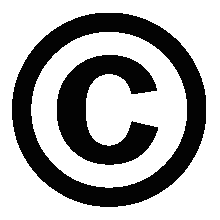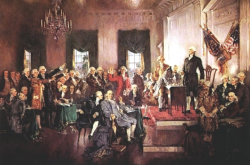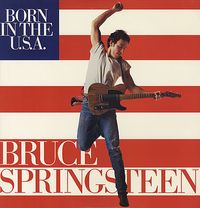Think of this as Volume 16, Number 5 of A-Clue.com, the online newsletter I've written since 1997. Enjoy.

Rather than seeing the growth possibilities in unfettered access to the Web, the Administration has focused instead on the national security threat, and has been captured in turn by copyright extremists.
It's a slippery slope, but it's one liberty must navigate. It's one America itself has been navigating, sometimes with mixed results, since its founding. With the rise of the Internet, and its global impact on growth in every country, it's one we all must navigate.
Let's be clear here, because I'm hearing a lot of whinging from my side of the aisle. Activists for an open Internet are not powerless in this fight. Far from it. Because in our hands is growth – economic growth, human growth, intellectual growth. When people are forced offline, when they merely feel less than free, that has a profound, negative impact on growth.
It doesn't take a formal boycott. The action against SOPA/PIPA was merely an overt example of what happens every day, in billions of places around the world. By simply refusing to submit, by withholding the weapon of growth from governments, people demonstrate real power.
On the other hand, government must play a role as both guarantor of liberty and maintainer of order. We can't let the Internet be so open that a foreign government can hack it down. We can't let people steal from our own people and hide from justice. That's anarchy, not liberty. It may seem like a Randian paradise, but it will quickly end as all such paradises end, either in the dictatorship of the Moneytariat or a Somali wasteland.
Both sides must admit that there is a balance to be struck, but right now no one is standing in the middle and saying so. Thus we blunder on.
So let me stand in the middle and say so.

This is something the copyright extremists at the RIAA, MPAA and Business Software Alliance (BSA) have never fully accepted, the duality and the purpose of what they insist on calling “intellectual property.” It's not land, it's not a car, it's not yours. It exists, as an enforceable right, for the express purpose of encouraging the creation of more such stuff, and when law stands in the way of that purpose then it's the law that must yield.
Thus the Megaupload case should be instructive to both sides. And here are some hard truths for both sides:
-
FOR THE OPEN INTERNET – Kim Dotcom was enabling the theft of movies, books and recordings for the private profit of people who didn't create them, and raking off tons of money for himself. He was a thief.
-
FOR THE RIAA – While Kim Dotcom was a thief, not everyone who did business with Megaupload was a thief. Threatening to erase innocent users' data in order to “teach them a lesson” is oppression.

Take speeding. There are laws against speeding in every U.S. state. But most states enforce these laws very haphazardly. The means of reliable enforcement – cameras with speedometers tied to the Internet – are unacceptable to most citizens. Because most of us, at one point or another, break the speed limit law. Yet the roads are not a Mad Max affair. A sort of order prevails, enforced mainly through mutual consent, and in the aftermath of every accident.
Copyright is the same. We all violate copyright in creating new stuff. To demand absolute adherence to copyright is like demanding that everyone obey every speed limit sign. It ain't gonna happen. And your efforts to use technology in that enforcement will be resisted, threatening respect for law generally. Because copyright material is both raw material and an end in itself. It is treated as both by the people, and must be respected as both by everyone, including industries representing rights-holders.
The people who wrote the U.S. Constitution debated these questions long and loud, and I think they got it about right, placing this among the powers of Congress:
To promote the Progress of Science and useful Arts, by securing for limited Times to Authors and Inventors the exclusive Right to their respective Writings and Discoveries;
Copyright is a limited right, given for limited terms for a specific purpose. It is not a property right. In the discussions that took place both before and during ratification these rights were often termed “monopolies.” And that is what they are.

It's not absolute and shouldn't be treated as such. When it violates its purpose it should be withdrawn. Because it's not the “property right” of the copyright holder that is paramount in our Constitution, but the liberty of the people. It's the commons, stupid.
The purpose of copyright is to act as raw material. It is not an end in itself. It's not an excuse for corporations to seek the power of absolute monarchs over us. It's a limited right given for a limited purpose, for our benefit.
Oh, and corporations aren't people, my friend. Anyone who claims otherwise is an ass.











I was also disappointed with the SOPA and PIPA. But this issue is not that active anymore. http://www.wrays.com.au/
I was also disappointed with the SOPA and PIPA. But this issue is not that active anymore. http://www.wrays.com.au/